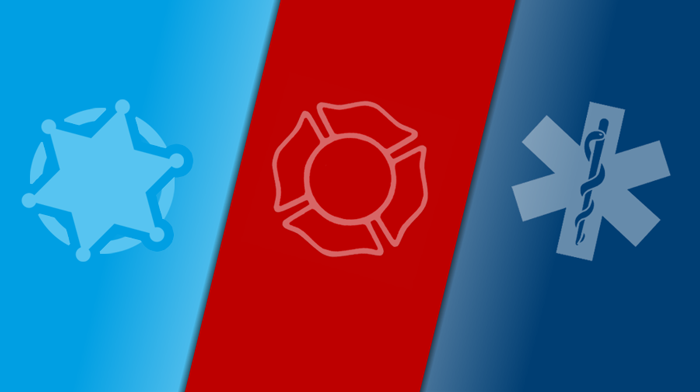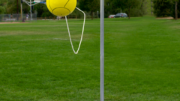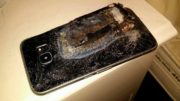A communication breakdown is one of the worst things a first responder can face during an emergency. The success of the mission and everyone’s safety hangs in the balance of whether or not important messages from command get through. There are many ways that communication can become disrupted for emergency workers. We’ve chosen to focus on the top three and offer solutions to each. Our goal here is simple: we want to help improve the communication for community first responders. This is extremely important, considering that people’s lives are at stake.
1. “Too Many Cooks in the Kitchen”
Everyone has heard this phrase by now, and most of us know what it means. It’s used to refer to situations were there are too many people giving orders and not enough people following them. This can happen in emergency situations that involve various departments. What happens when you have a police chief, fire chief, and community first responders all working the same incident? It can turn into a nightmare if no one planned ahead for these types of situations.
The Fix: Emergency services experts have a few solutions for this communication challenge:
-
Develop knowledge about psychology and communications, as these skills will likely come in handy during an emergency. There are plenty of outside training programs that help first aid responders develop these skills.
-
Network with other departments in your area so you know their command before you meet them in the field. This helps cut down on misunderstandings, etc.
-
Have clear cut procedures in place that detail who needs to be contacted, etc. in emergency situations.
The experts we talked to recommend utilizing all of these tips. They also emphasized the importance of training all relevant members of your team in anything that becomes a procedure. This information is no good to any department if only one person knows it. What if that person is called to a different emergency? Or isn’t working that day? You need a second-in-command with that knowledge to step in and take command.
2. Simple Miscommunication Between People
Have you ever struggled to explain something to another person? If so, you’ve experienced the kind of simple miscommunication we’re talking about here. Unfortunately, this happens sometimes during emergencies. It can be extremely frustrated for all first responders who are trying to do what they do best, which is saving lives. When this happens, one of a few things is going on:
-
The person speaking doesn’t know enough about what they’re saying to simply explain it.
-
The person receiving the information doesn’t understand what’s being said.
-
Both people in the conversation don’t fully understand what’s going on.
The Fix: There’s an old quote attributed to Albert Einstein that holds the solution to the miscommunication problem. “If you can’t explain it simply, you don’t understand it well enough.” What ol’ Albert is getting at here is simple. Do your people in communications roles understand things enough to explain and/or understand it during emergency situations? It all comes down to training, and it’s up to you to make sure your emergency crew has enough to do their jobs well.
3. Poor Reception in the Field
They say “a bad carpenter blames his tools,” but that old saying has its flaws. First responders can find themselves in areas with poor reception. It could be places that have tall buildings or many trees, or it could areas that are far from the cell phone towers. No matter the reason, these low-signal areas can lead to dropped calls and missed texts between crews in the field and the base. As a first responder, you know that this is NOT a good situation to be in when lives are on the line.
The Fix: Truthfully, overcoming bad reception might be the easiest thing on this list to remedy. What your emergency crews need are cell phone booster systems in their vehicles. These devices simultaneously amplify incoming and outgoing cell signals. This helps reduce or end dropped calls and missed texts. Keep in mind that a cell booster won’t turn your vehicle into a mobile cell site or restore service to areas with no service. It will help first responders make and receive calls inside or near the boosted emergency vehicles, which is extremely valuable.
Cell Boosters for First Responders
Many first responder companies and departments call us wanting cell boosters for their fleets. They all understand the importance of having these devices on their vehicles. They only thing they’re not sure of is which ones to get. That’s okay, because we don’t expect emergency workers to be experts in cellular signal boosters. You guys specialize in saving lives, which is of the utmost importance. We’re happy to provide you with the product recommendation.
Good cellular communication starts at your base station. Sadly, metal and other construction materials are known to block cellular signal. So, the very building your unit is housed in could be contributing to the reception problem you’re having. The cell phone booster you need is the Guardian4 from SureCall or the Nextivity Cel-Fi GO RED. These devices are the only two cell boosters that work with AT&T’s FirstNet network. Whether you’re a full-time or part-time first responder, you’ve probably used this closed cell network made exclusively for emergency workers.
When it comes to first responder vehicles, there are many cell boosters to choose. We carry a wide variety of vehicle signal boosters from weBoost and Surecall. These products are FCC-approved and feature auto gain control and anti-feedback technology, which enhance the quality of each boosted call, text, and download. Solid Signal can recommend the right cell phone boosters for your emergency vehicles. But before you pick up that phone, we want to tell you about our…
…First Responder Discounts
Everyone here respects and appreciates first responders. To show our gratitude for your hard work and sacrifice, we offer discounts to qualified first responders. This includes cell phone boosters as well as deals on cell phones, wireless plans, and DIRECTV subscriptions. (Yes, we do all of that, too.) These discounts are valid for your department as well as individual first responders. We encourage you to take advantage of this promotion. You’ve definitely earned it!
Want to Know More About Cell Boosters?
Call the experts at Solid Signal. We’re here to help you. Our customer service team will answer all of your questions. They’ll also make a product recommendation for your base station and emergency vehicles. This high level of concierge service all starts with a phone call. You can reach our offices at 888-233-7563. Don’t have time for a phone call? That’s okay. You can also take a quick moment to fill out the form below and send it to us. We’ll get back to you in one business day or less.




